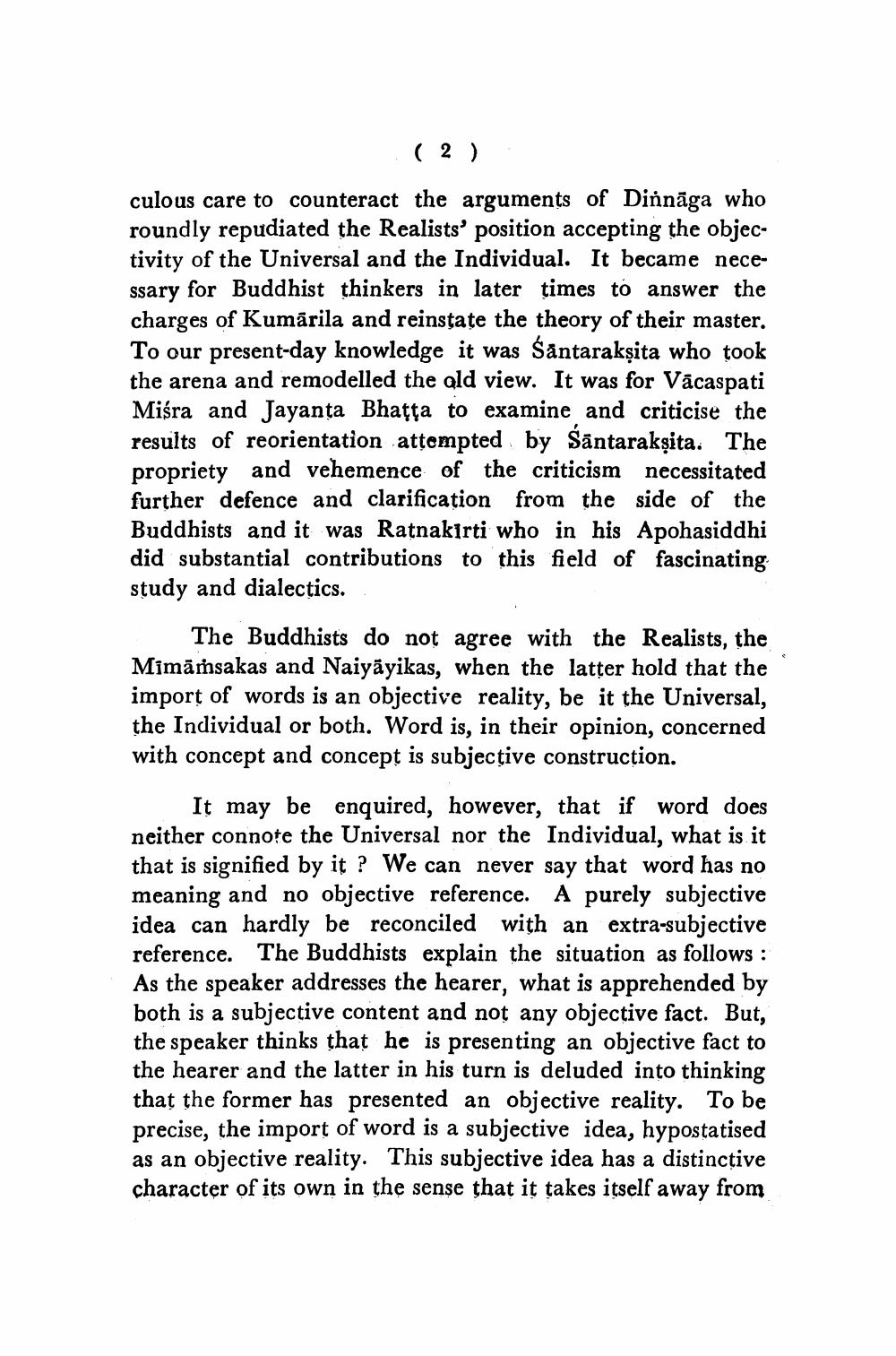________________
( 2 )
culous care to counteract the arguments of Dinnāga who roundly repudiated the Realists' position accepting the objectivity of the Universal and the Individual. It became necessary for Buddhist thinkers in later times to answer the charges of Kumārila and reinstate the theory of their master. To our present-day knowledge it was Såntarakṣita who took the arena and remodelled the old view. It was for Vācaspati Miśra and Jayanta Bhatta to examine and criticise the results of reorientation attempted by śāntarakṣita. The propriety and vehemence of the criticism necessitated further defence and clarification from the side of the Buddhists and it was Ratnakirti who in his Apohasiddhi did substantial contributions to this field of fascinating study and dialectics.
The Buddhists do not agree with the Realists, the Mimāṁsakas and Naiyāyikas, when the latter hold that the import of words is an objective reality, be it the Universal, the Individual or both. Word is, in their opinion, concerned with concept and concept is subjective construction.
It may be enquired, however, that if word does neither connote the Universal nor the Individual, what is it that is signified by it ? We can never say that word has no meaning and no objective reference. A purely subjective idea can hardly be reconciled with an extra-subjective reference. The Buddhists explain the situation as follows : As the speaker addresses the hearer, what is apprehended by both is a subjective content and not any objective fact. But, the speaker thinks that he is presenting an objective fact to the hearer and the latter in his turn is deluded into thinking that the former has presented an objective reality. To be precise, the import of word is a subjective idea, hypostatised as an objective reality. This subjective idea has a distinctive character of its own in the sense that it takes itself away from




